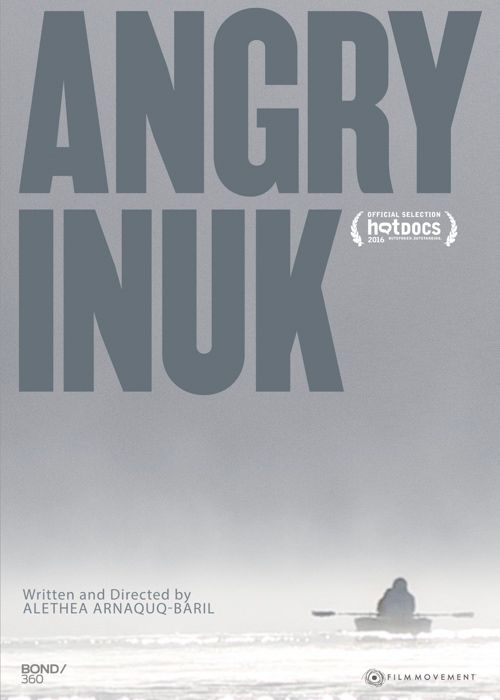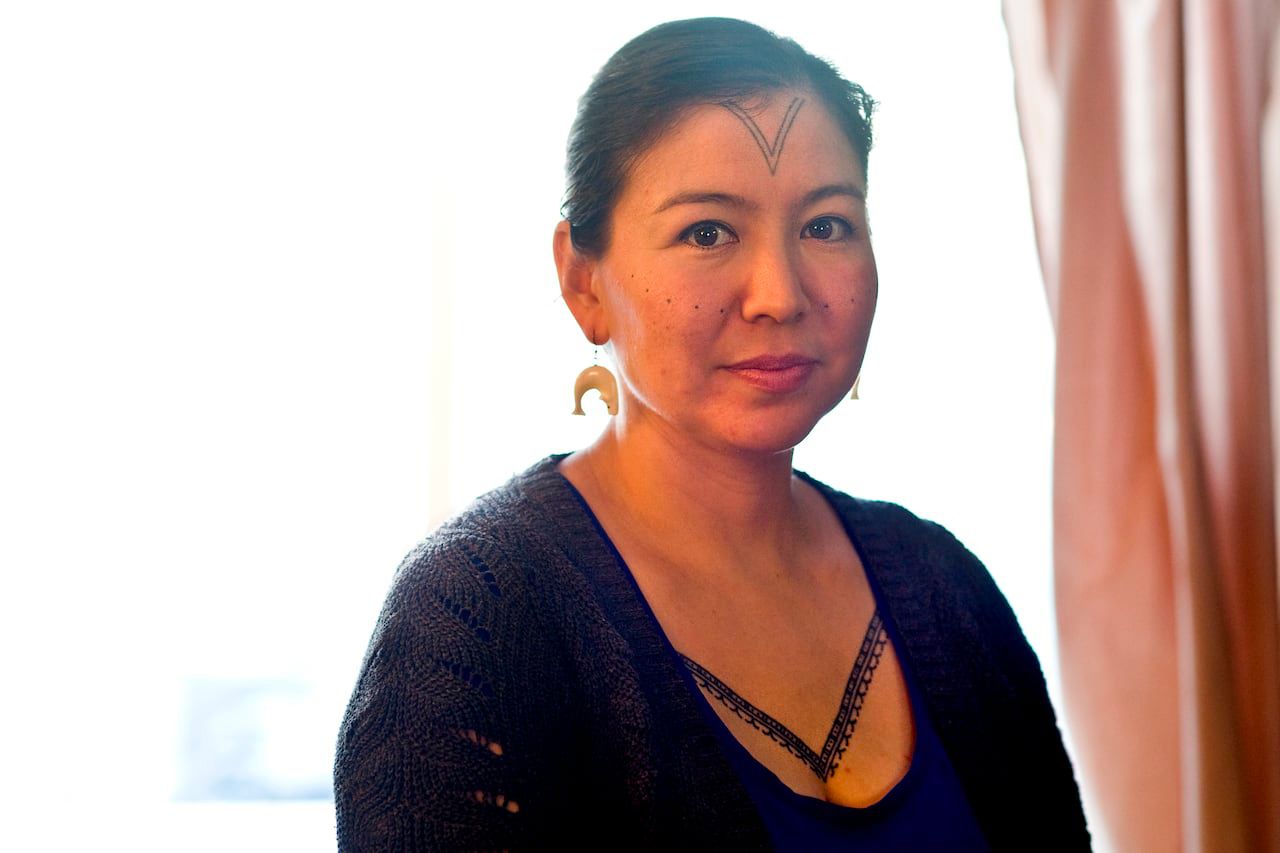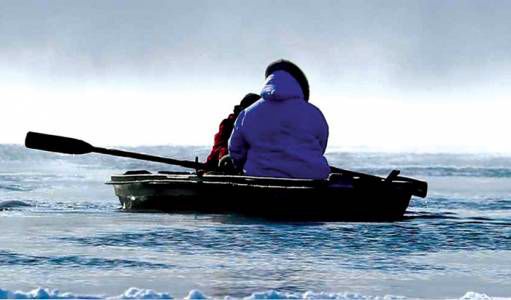Angry Inuk (2016), directed by Alethea Arnaquq-Baril, explores the ongoing conflict between Inuit seal hunters and animal rights activist groups. Arnaquq-Baril narrates the documentary, showcasing the sacred history and practice of seal hunting in Inuit communities.

Born in Iqaluit, Alethea Arnaquq-Baril is an Inuk filmmaker whose projects primarily focus on Inuit cultural practices. Graduating from Sheridan College for illustration and art fundamentals, Arnaquq-Baril also completed animation training at the Banff Centre. In 2016, Angry Inuk won the Audience Choice award at both Hot Docs Festival 2016 and the imagineNATIVE Film + Media Arts Festival. The film also received the People's Choice award at TIFF's Canada's Top Ten Film Festival in 2017.
The beginning scenes of the film take us on an actual seal hunt. Although for some it may be difficult to watch, this scene demonstrates the humane and sustainable approach Inuit hunters use with seals. Following that scene, Arnaquq-Baril explains how there are many people who critique seal hunters, calling them “horrible things”.

The documentary then shows how every part of the seal is not only used, but shared with the community, feeding and providing for many. Northern Canadian areas, such as Nanuavt, face extreme food insecurity. With inflated exportation prices, groceries in these areas are unbelievably expensive.
In the past year, McLean’s published an interview with Kyra Flaherty, an Inuk woman who took to Tik Tok to show just how high the price of groceries is in the North. As of 2022, according to Flathery’s account, a box of All-Bran Kellogg’s cereal is almost $20, one can of Campbell’s chicken noodle soup is $7.99, and a bottle of Heinz Ketchup is $10.
Angry Inuk advocates for Inuit sovereignty, both inside and outside of an economic context, and the right to care for one’s community, especially in the face of such disproportionate food insecurity. Moreover, Alethea Arnaquq-Baril seeks to debunk and challenge negative notions about seal hunting, perpetuated by animal rights activist groups that are mainly informed by colonial ideals of what sustainability should look like.
Arnaquq-Baril explains that the Canadian government is responsible for invasive and violent extraction projects that injure marine mammals like seals. However, animal rights groups direct their concern and critiques to Inuit hunters and communities instead of governments and policies.

Indigenous communities have and continue to take care of their land. In contrast, it is the colonial government’s policies and the settlers that are responsible for degrading both the planet and its wildlife. Angry Inuk follows the journey of this campaign led by Inuit adults and youth to establish international and national protections for Inuit seal hunters so that they can secure income and care for the land in a traditional and efficient manner.
Alethea Arnaquq-Baril's efforts to shed light both on Inuit seal hunting and the history behind it through her work with Angry Inuk parallels the United Nations Development Goals for Life on Land and Sustainable Cities and Communities. Angry Inuk discusses the necessity and importance of self-sustained care. Furthermore, the documentary showcases how traditional hunting practices are an important foundation for this care and must be respected as such.
Secondly, what is one of the most important aspects of Angry Inuk, for non-Indigenous viewers, is that the documentary reconfigures popular notions of sustainability, challenging settler-colonial ideas about living sustainably and about how we care for the land.
To watch Angry Inuk, check out this link.
To learn more about Alethea Arnaquq-Baril include, see her Twitter.
To read the aforementioned McLean’s article, visit this link.
For more information on the food insecurity crisis, check out the Illunnata Campain.
